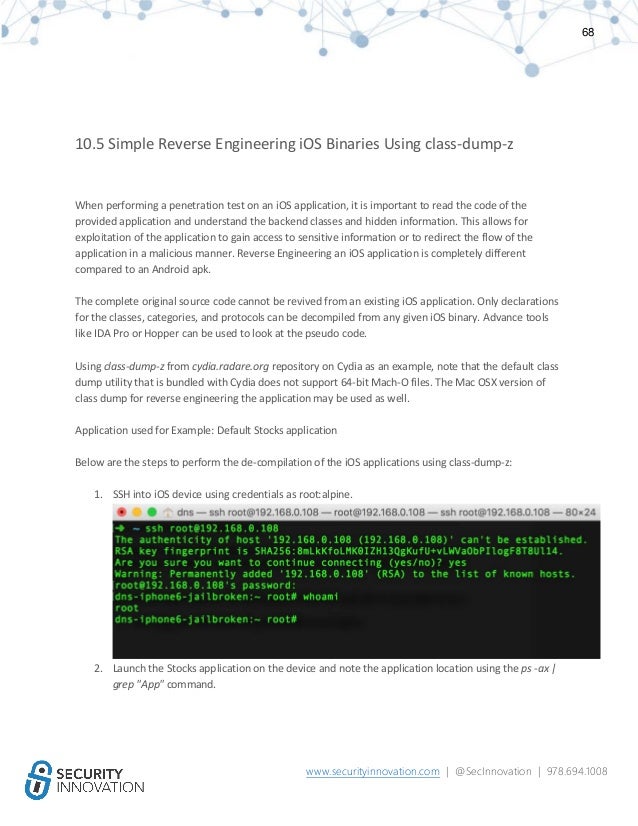Brake-for-mac/openssl.h At Master Kjcracks/brake-for-mac Github
- Brake-for-mac/openssl.h At Master Kjcracks/brake-for-mac Github Account
- Brake-for-mac/openssl.h At Master Kjcracks/brake-for-mac Github Free
Install and Use Homebrew on macOS Homebrew is a package manager for macOS. You can use Homebrew to install command line packages on a Mac, provided someone has written a formulae, which is a simple Ruby script that walks through the process for installing all the little bits required for a piece of software. Installing Homebrew is simple. Run the following command which is listed on the (not as root): /usr/bin/ruby -e '$(curl -fsSL will install the macOS Command Line Tools from Xcode as well as create the following directories (if they’re not already present):.
/usr/local/Cellar. /usr/local/Homebrew. /usr/local/Frameworks. /usr/local/opt. /usr/local/sbin.
/usr/local/share/zsh. /usr/local/share/zsh/site-functions.
/usr/local/var Then the script will move all the required bits from to the correct locations. Once done, you can easily install a package if you know the name. For example, I do this on practically every new machine I configure for development: brew install wget This one is nice because the dependencies that get installed.
And you get the latest versions. Let’s look at the version for wget: wget -V Next, let’s use brew to search for something: radius brew search radius You’ll see that there’s one item on the local taps: freeradius-server Let’s install that: brew install freeradius-server. Err, I got to this page from here:, by clicking on the link titled “Configure FreeRADIUS on MacOS”. Unfortunately, it seems to the the same content as the link to install FreeRadius. I’ve worked through the second version of the official Apple documentation on migrating Radius, which is awful. There are two obvious errors that have nothing to do with the actual configuration: – When building talloc, “configure -without-gettext” should be “configure –without-gettext” – When setting up the launchctl file, “sudo chmod root:wheel ” is clearly wrong, should be chown Needless to say, this reduced my confidence in the official apple guides instructions on how to configure FreeRadius. And sure enough, after following the guide, freeradius -XC shows no errors, but my firewall VPN that depends on radius authentication doesn’t work.
I haven’t actually upgrade OS X server yet, so I’ve fallen back to that in the meantime. I don’t know if anyone else has successfully worked through the Apple docs.
If there are instructions on how to configure the brew-built freeradius, I could probably switch to that.
I made the grave mistake of upgrading a working installation. Who'd expect a regression bug in something as fundamental as authentication? HTTPS authentication was working fine for a.private. Github repo. Doesn't now for pull requests.
Brake-for-mac/openssl.h At Master Kjcracks/brake-for-mac Github Account
Yet works well enough to download all hunk details of the remote commit that it won't process. Tried deleting the relevant file in /Library/Application Support/Sourcetree, deleting the keychain entry, and re-entering the password when prompted.
Even repeating the process after deleting and re-adding the account in Preferences Accounts. In the end, I had to switch to SSH to get things working again, but that was not without annoyances.
Sourcetree would not allow me to specify the key to be used, and insisted that it was configured in.ssh/config. To add insult to injury, when recreating the user account from scratch, Sourcetree refused to recognize the SSH key and config file it had previously generated. Until it decided it would.
[CODEC] PMP Codecs 9. Download: mpc star tiger player for mac.
Brake-for-mac/openssl.h At Master Kjcracks/brake-for-mac Github Free
Very inconsistent. Nowhere is a tip offered that the path for a repo is different for ssh as stored in Repo Settings Remotes. Instead of being it needs to be git @github.com:mylogin/reponame.git. No prefix, 'git@' for the username prefix, and colon after the server name.

I realize you have a competing service to Github, but authentication should really be more robust than it seems here. Hi Richard, I understand that you had some trouble with authentication with your GitHub account setup on Sourcetree.
I also acknowledge that ssh key selection isn't the best of experiences if you have a key already in a custom location and Sourcetree doesn't select a previously generated key unless the account is authenticated (if you are using OAuth). We will definitely note this and make the experience better in the coming days. Feel free to submit a ticket for this on our public bug tracker jira.atlassian.com to track. However, I see that HTTPS Auth for GitHub is working as expected for me in almost all use cases.
I would like to understand the specific steps that led to the error and error messages you saw with the reports of authentication failure. Should you face this again, please make sure you enable debug logging for Sourcetree by executing below command on the terminal and send us the logs too. Defaults write com.TorusKnot.SourceTreeNotMAS 'LogLevel' 5 Thanks, Manjunath Sourcetree Mac Developer. The SSH config that was the fix is no longer working. The dialog box error message: git -c diff.mnemonicprefix=false -c core.quotepath=false -c credential.helper=sourcetree fetch origin Permission denied (publickey).
Fatal: Could not read from remote repository. Please make sure you have the correct access rights and the repository exists. Manjunath, this seems to have fixed the problem, and I thank you for the solution, but it shouldn't have been necessary. 1) The SSH key worked in Sourcetree a week prior. The Mac wasn't rebooted, etc. In the meantime.
2) The SSH key and the supporting config was originally generated by Sourcetree, so this step should have been done if necessary. 3) Foremost, if Sourcetree would just allow the user to point to the key file instead of requiring the more elaborate ssh-config-file + ssh-agent + keys-loaded-into-agent + keychain-used-for-who-knows-what the whole setup would be far simpler and more obvious to maintain.
I shouldn't have to learn the nuances of the SSH subsystem to login through your product - I don't with any other (e.g., command-line git, ssh, scp, etc.).